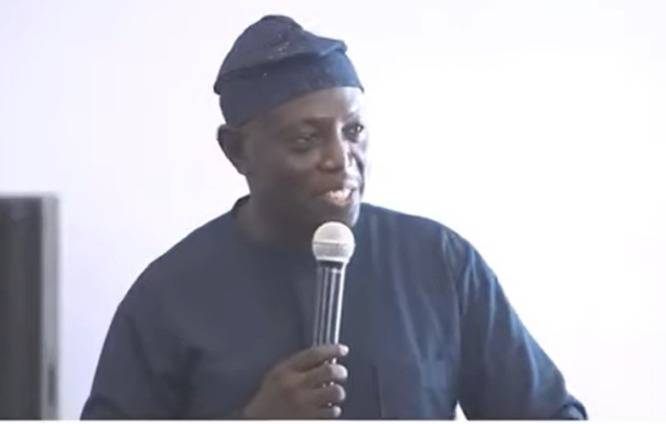Accra, Ghana – Ghana’s financial woes stem not from bankruptcy but from deep-seated systemic leaks draining billions annually, according to Associate Professor Isaac Boadi, Dean of the Faculty of Accounting and Finance at the University of Professional Studies, Accra (UPSA). His stark assessment came during a high-level forum on tax revenue leakages, where he urged immediate action to stem the crisis.
“Ghana is not broke. Ghana is bleeding,†Prof. Boadi asserted, framing the issue as a national emergency transcending political divisions. “This is not NDC versus NPP. It is Ghana versus corruption.â€
The Cost of Leakages: A Sector-by-Sector Breakdown
Citing authoritative reports, Prof. Boadi outlined staggering losses across key sectors:
- Tax Administration: GH₵3 billion lost yearly through illicit financial flows, with high-net-worth individuals and foreign firms exploiting legal gaps (GRA data).
- Customs & Trade: Over GH₵550 million vanishes annually due to under-invoicing, particularly in machinery and textiles (World Bank, 2023).
- Gold Mining: GH₵2 billion lost in 2022, with 60% of small-scale miners evading taxes.
- Oil & Gas: GH₵1.5 billion unaccounted for in production-sharing agreements (OPEC figures).
- Cocoa Smuggling: GH₵150 million leaks yearly via cross-border trafficking.
- Forestry: Illegal logging costs GH₵250 million in unpaid timber royalties (Forestry Commission).
- Public Procurement: GH₵170 million wasted through inefficiencies (Auditor-General’s reports).
- Ports: GH₵250 million lost in unpaid import duties due to corruption.
“These aren’t just numbers,†Prof. Boadi emphasized. “They translate to unbuilt schools, missing medical supplies, and shattered opportunities for millions.â€
Root Causes: Weak Systems, Collusion, and Impunity
The dean pinpointed four systemic failures fueling the crisis:
1. Lax enforcement allowing evasion to thrive.
2. Outdated revenue systems ill-equipped for modern challenges.
3. Institutionalized collusion between officials and offenders.
4. Opacity in public finance, shielding misuse from scrutiny.
“The loopholes aren’t exploited by petty criminals alone,†he noted. “Powerful corporations and complicit insiders profit while ordinary Ghanaians suffer.â€
A Call to Action: Digitalization, Transparency, and Accountability
Prof. Boadi proposed urgent reforms:
- Digitize revenue collection to curb human interference and fraud.
- Enforce strict penalties for tax evasion and smuggling.
- Publish real-time expenditure data to boost fiscal transparency.
- Formalize the informal sector, broadening the tax net responsibly.
“The solutions demand courage from all stakeholders—government, businesses, and citizens,†he concluded. “Without action, we risk deeper unemployment, crumbling services, and a debt spiral with no easy exit.â€
The forum’s takeaways underscore a pressing truth: Ghana’s fiscal health hinges not on external bailouts, but on plugging the leaks within. The time to act, experts warn, is now.
Why This Matters: With Ghana’s economy under strain, unchecked revenue losses threaten to derail development. Prof. Boadi’s analysis offers a roadmap—but political will and public vigilance will determine whether it’s followed.


